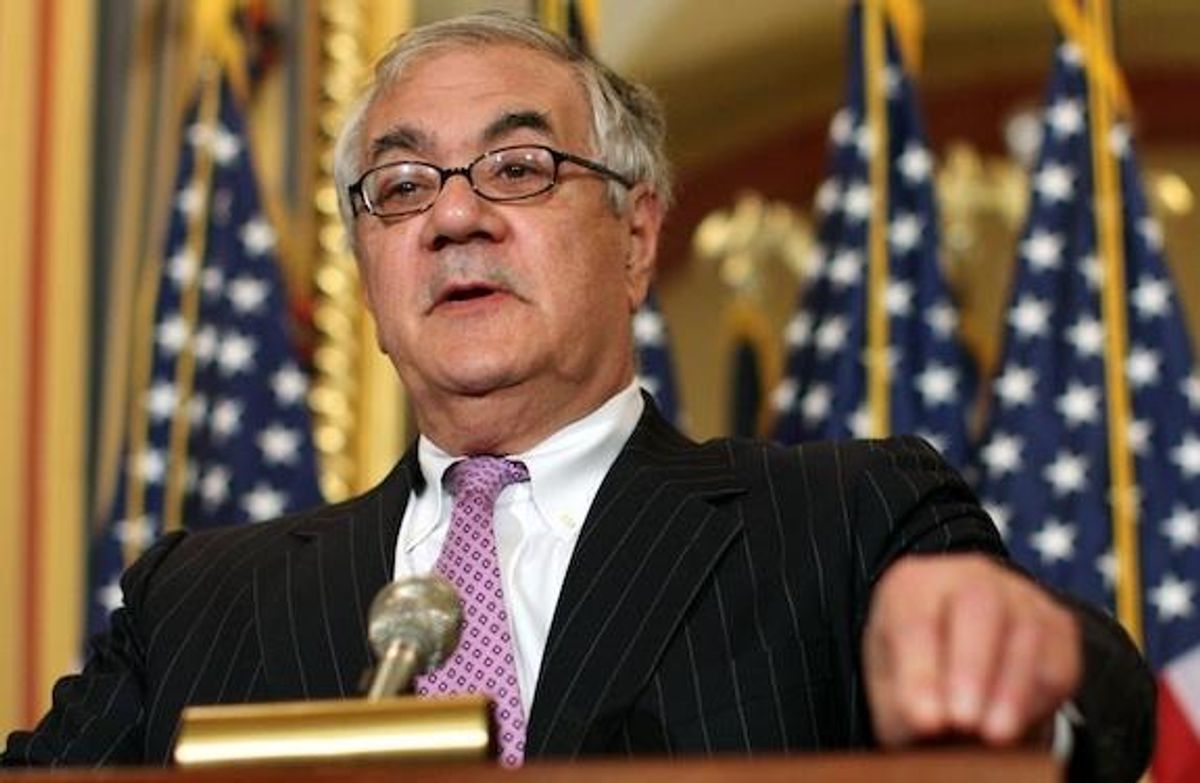News & Opinion
Barney Frank: 'It’s Important My Colleagues Interact With A Married Gay Man'

Massachusetts congressman tells all
April 16 2012 11:00 AM EST
March 22 2016 2:51 AM EST
By continuing to use our site, you agree to our Private Policy and Terms of Use.

Massachusetts congressman tells all
You didn't think he'd leave quietly, did you?
In the new issue of New York magazine, out today, Massachusetts Congressman Barney Frank gives an epic interview, discussing everything from how he got into politics to how government has changed in his time there to, of course, being one of the most visible gay politicians in the world.
The entire piece (here) is worth reading, but there are some parts we found especially interesting.
On his politics when he first came to office: "I had a kind of general liberal agenda. I also had in mind to try to do something about gay rights, as we then called it, because I'd been a leader on that in the [state] legislature. I was still closeted, but from the day I decided to run for office, I decided that I would, of course, still be closeted but that I would work very hard for gay rights. It would be totally dishonorable, being gay, not to do that."
On what he's most proud of: LGBT rights are very important. I will take very substantial credit for the repeal of "don't ask, don't tell." I've done a lot in housing, in preserving rental housing, in keeping rental housing going. I've been frustrated for years, but I now take some credit in the last few years for putting military-spending reductions on thetable. I think I played an important role in blocking the impeachment of Bill Clinton.
On his upcoming wedding: "I want to get married. I do think, to be honest, if I was running for reelection, I might have tried to put the marriage off until after the election, because it just becomes a complication. But I did want to get married while I was still in office. I think it's important that my colleagues interact with a married gay man."
On Gay Pride celebrations: "Pride Weekend was very important early on because people didn't know who we were. The hiddenness was a problem. Today, pride has no political role. It's a fun thing for people."
On what's next: "Look, this job certainly didn't make any sense in terms of maximizing my income or minimizing my stress or maximizing the comfort of my life. I think it's a wonderful job to have because I'm able to work to make fundamental changes in society and improve the quality of people's lives and eliminate and diminish unfairness at various times. If I wasn't able to do what I thought was important public policy, it would be a stupid job to have."